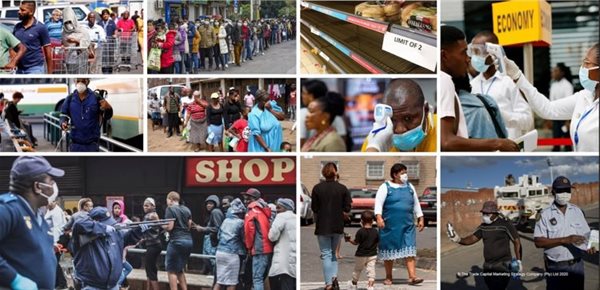
Top stories






More news

















Logistics & Transport
Uganda plans new rail link to Tanzania for mineral export boost









We currently have a wealth of data and a mass of reports coming at us from around the world relating what the new retail reality is or may be post the Covid-19 outbreak. This information may help assess the future for the formal market, but what about the township market that is so vital to South Africa’s economic and social well-being?
VF! has been active in this market for over a decade, carrying out research and insight work both for itself and a range of local and international clients. As a result of this, we have supplied many thousands of brand visibility tools and displays to the broad range of retail found in the townships.
As soon as Covid-19 became a known issue, we adjusted some of the work we were doing to look specifically at the impact it was having. This allowed us to formulate plans for our brand clients as to how to best manage their budgets for visibility at this difficult time.
Specifically, we have been conducting qualitative shopper panel research into township shopping behaviour in SA since the President’s first announcement of social distancing measures on 15 March and on into lockdown.
To start, we made the obvious assumption that local spazas, superettes and small locals would benefit. Not so, the panels revealed. Lack of adherence to social distancing and sanitation protocols, confusion over opening times, and long, disorganised queues led many shoppers to travel out of local environments to suburban stores where protocols had been established.

Today, however, the pattern is changing. Fear for economic well-being has significantly overtaken anxiety for health and safety. Budgets are tighter, product mix is reduced to core essentials, and there are far more small shop regular visits to local stores.
Where local stores have tightened social distancing protocols, store penetration is now high. Where not, the converse is true. This resonates with our research which found that 83% of shoppers feel unsafe when going shopping. The decision tree on store choice follows a very different hierarchy from pre-lockdown days.
Combining our previous research at times of economic disturbance with our current findings, we know that shoppers are looking for trusted brands and KVI pricing, yet still may wish to treat themselves. We found that 63% of shoppers intend to remain loyal to their trusted brands for the sake of known quality. Shoppers are reluctant to take quality risks at this time.
So how can FMCG suppliers apply this information to their traditional trade strategies because we know that the time to invest in local is now, in order to establish both visibility and trust into the future?
VF! highlights the following 5 recommendations:
● Protect and upweight investment to local stores;
● Re-think budget planning to get the right products and visibility into these stores;
● Drive stock pressure to alleviate local store stock-outs;
● Facilitate speed and ease of purchase;
● Support and educate on socially responsible messaging and social distancing protocols.
Local is important, now more than ever!
VF! continues to conduct research into SA retail throughout the lockdown period and will be sharing more insights over the coming weeks.